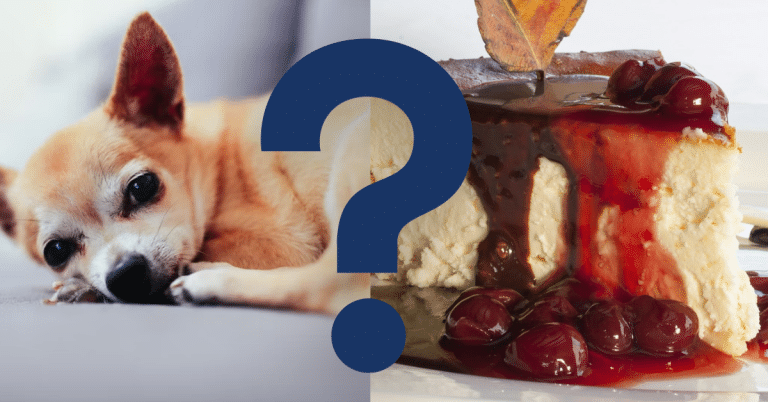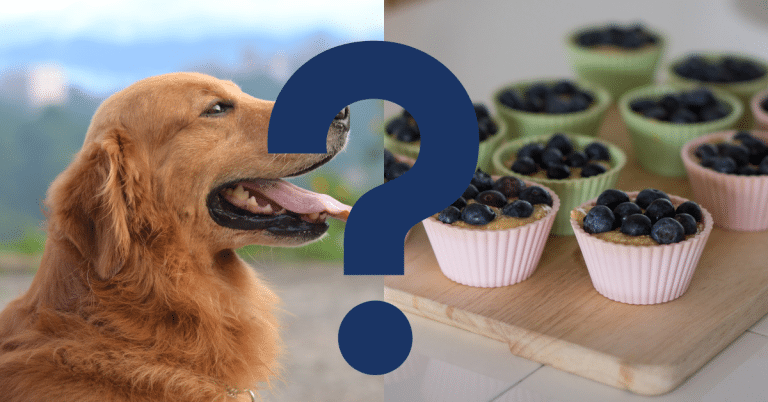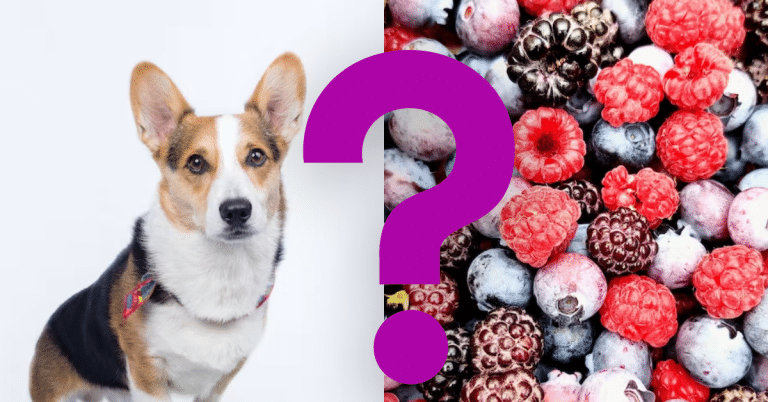Can Dogs Eat Pork Bones? A Vet’s Opinion

Dogs love chewing bones, but can you feed Pork Bones to your dog?
Pork bones shouldn’t usually be given to dogs. Cooked pig bones can easily splinter, posing a choking risk or perhaps leading to internal injury if ingested.
Benefits Of Pork Bones For Dogs
When done appropriately and under supervision, giving dogs raw pig bones may have a few benefits. It’s crucial to remember, too, that not all dogs will handle bones well and that each dog may have different dietary demands and preferences. Here are a few possible advantages:
- Dental Health: Chewing on raw bones can help a dog’s teeth become cleaner by removing plaque and tartar. The chewing process can help keep the teeth cleaner and less prone to bacterial growth.
- Mental Exercise: Chewing on bones can mentally and physically stimulate dogs. It can assist them in passing the time and give their natural chewing urges a natural outlet.
- Value Nutritionally: Raw bones can be a source of calcium and phosphorus, two essential elements. It’s important to remember that the nutritional makeup of bones might vary. Thus, it’s crucial to maintain an overall balanced diet.
- Dogs are innate chewers, so supplying them with appropriate chew toys, such as raw bones, can help satisfy their drive to nibble. This enriches and satisfies them. This can improve their general well-being and possibly stop them from using destructive chewing habits.
- Joint Health: Cartilage is found in some raw bones and can naturally supply glucosamine and chondroitin. These substances may be helpful, especially for elderly dogs or those with joint problems. They support joint health.
- Chewing on bones might stimulate a dog’s innate need to hunt and scavenge for food. Natural behavior and instincts. It might offer a fun and fulfilling hobby that reflects their ancestors’ habits.
- Weight Management: Dogs can enjoy chewing on raw bones because they are low in calories. They can aid in satiating a dog’s desire to chew without adding too many extra calories if included in a balanced diet.
- Improved Digestion: By encouraging dogs to chew their food longer and more completely, chewing on raw bones can help dogs have a healthy digestive system.
- This can support gastrointestinal health, help break down food particles, and enhance nutrient absorption.
- Dogs that are stressed out may find relief in chewing on bones. It can encourage relaxation, give people an outlet for extra energy, and lessen worry.
It’s important to stress that giving bones to dogs might have unintended consequences, even if they are uncooked and considered safe. It’s crucial to watch your dog as they chew on a bone to ensure they don’t swallow any large or pointy bits. Additionally, based on your dog’s particular requirements and medical concerns, speak with your veterinarian to decide if feeding them raw bones is a good idea.

How To Safely Give Pork Bones To Dogs?
Here is a more thorough guide on how to give dogs pork bones safely:
- Select the proper kind of bones: Choose raw, meaty bones that are appropriate for the size and breed of your dog. It’s typical to suggest pork rib or pig neck bones. Avoid using little, thin bones that are simple to ingest or splinter.
- Size does matter: Choose bones that are big enough for your dog not to be able to swallow them whole. The bone should be more significant than your dog’s mouth to avoid choking risks. The size of the bone should match the size of your dog. A giant dog, for instance, would be better equipped to manage larger bones than a tiny dog.
- Introducing bones gradually is essential if your dog isn’t used to gnawing on them. Start with smaller, softer bones to help your dog get used to chewing. Keep an eye on their behavior and make sure they are correctly chewing the bones.
- Always keep an eye on your dog when they are gnawing on bones. This enables you to monitor their chewing patterns and ensure they swallow the bone sparingly or slowly. Observe the chewing process for any indications of distress, excessive aggression, or strange behavior.
- A time limit on chewing Place time restrictions on chewing sessions.
- Depending on the size of the bone and your dog’s chewing proclivities, 15 to 30 minutes might be a reasonable time frame. Remove the bone after the allotted time to avoid overconsumption or any risks. Beware of any guarding behavior since some dogs may become possessive or protective of their bones.
- Examine the bone: Check it for any indication of breakage or jagged edges before giving it to your dog. To prevent any harm to your dog’s mouth or digestive system, throw away the bone immediately if you observe any splintering, sharp points, or severe wear.
- Bones should be appropriately stored: When not in use, place the bones in a secure location that your dog cannot access easily. Don’t leave bones around the house to prevent mishaps or encourage gnawing on inappropriate objects
.
- Consider alternatives: If you’re worried about the risks of giving your dog bones, consider options like chew toys or dental chews meant to support tooth health and satiate your dog’s need to chew.
Remember that every dog is unique, so what works for one dog might not work for another. Your veterinarian can provide personalized guidance based on your dog’s unique requirements and medical circumstances if you have any worries or inquiries regarding feeding bones to your dog.
Will Pork Bones Make A Dog Sick?
Yes, giving dogs pork bones has the potential to make them ill. Even if the pork bones are raw, giving them to animals has several concerns. Small, brittle pork bones, in particular, can break into sharp pieces that, if eaten by dogs, can result in choking. Serious breathing problems can result from these bone pieces because they can get stuck in the throat or restrict the airway. If a dog chews or swallows pork bones, the sharp edges could cut into its mouth, throat, stomach, or intestines. These wounds can range in severity from minor cuts and scrapes to more serious conditions requiring surgery.
Consuming pork bones, especially in large amounts or if the bones are fatty, might cause digestive troubles. Dogs might develop symptoms like diarrhea, vomiting, gastrointestinal pain, pancreatitis, and pancreas inflammation.
Tooth problems are a possibility even if chewing on bones might help to maintain tooth health. Too-hard or sharp-edged bones might harm the jaw or cause injuries to the gums and teeth.
Individual dogs may respond to eating bones differently, and some may handle them better than others. However, the potential health dangers associated with feeding pork bones to dogs should be avoided as a general precaution.
Instead, consider safer options like dog chew toys or treats for chewing and improving tooth health. For advice on suitable dietary options for your dog, always seek the advice of your veterinarian.

Vet’s Summary
Dogs may become ill if fed pig bones because of the risks involved. It’s crucial to consider the risks connected to pig bones despite the allure of bones for dogs, including the potential advantages for dental health and cerebral stimulation. These risks include choking hazards, internal injuries, digestive disorders, and tooth troubles. As a result, it is typically not advised to give dogs pig bones. Dogs being given bones raises severe concerns about choking hazards. Smaller and more fragile pork bones are more prone to breaking into sharp fragments that, if ingested, can lead to choking. These bone fragments could become stuck in the throat, block the airway, and cause severe breathing problems. In addition to being potential choking dangers, dogs who chew or swallow pig bones may have internal injuries. These wounds can range in severity from simple cuts and abrasions in the mouth and throat to more severe disorders that might need surgical intervention. The digestive system is also in danger since eating pork bones, particularly in large amounts or if the bones are fatty, can cause digestive problems. Dogs may have pancreatitis, an inflammation of the pancreas, vomiting, diarrhea, and abdominal discomfort.
Probiotics can help maintain your dog’s general health, which includes digestive health. Probiotics are good microorganisms that can help dogs have a healthy gut microbiome. They can improve nutrient absorption, bolster the immune system, and aid digestion. It is crucial to speak with your veterinarian if you are worried about your dog’s digestive system or are considering giving him probiotics. By your dog’s particular requirements, they can suggest suitable probiotic supplements made especially for dogs and offer advice on the correct dosage and administration.
Videos To Watch
Watch the videos below to find out if your dog can eat pork bones:
What will happen if your dog eats pork bones? Find out in the video below:






